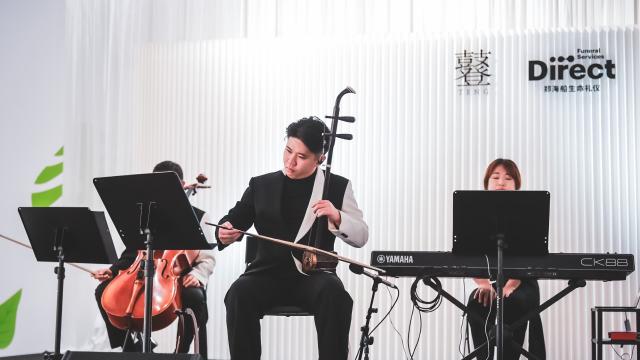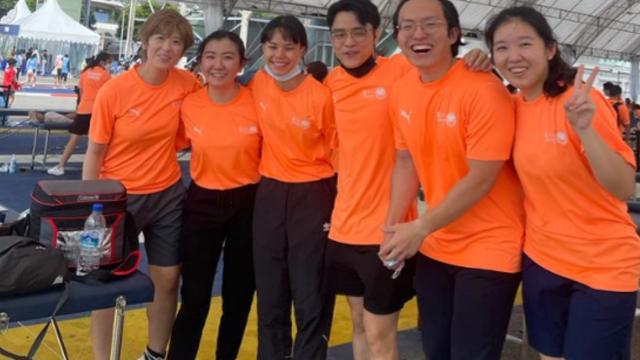Experts at the National Occupational Therapy Conference (NOTC) 2024 explored innovative solutions to address ageing populations and youth mental health challenges, paving the way for a more inclusive Singapore.
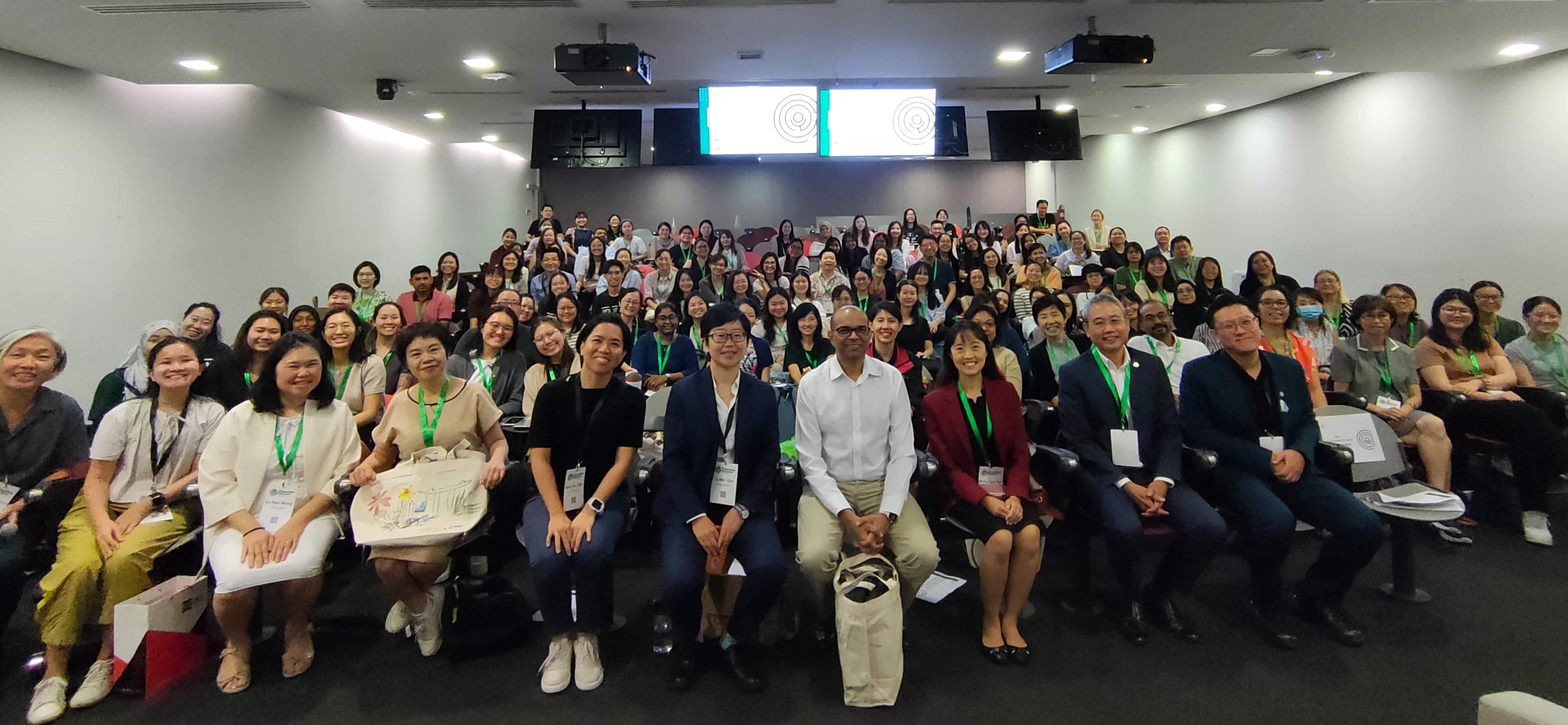
NOTC 2024 united occupational therapy practitioners, researchers, and students to share insights and forge partnerships. (SIT photo)
Amidst an ageing population and a growing focus on creating an even more inclusive society, occupational therapy has emerged as a core driving force. This was the focal point of the National Occupational Therapy Conference (NOTC) 2024, co-organised by the Singapore Institute of Technology (SIT) and the Singapore Association of Occupational Therapists (SAOT) on 12 and 13 July.
Through the partnership between SAOT and SIT, NOTC 2024 saw over 180 professionals converge to explore the theme of "Expanding Horizons: Occupational Therapy for an Inclusive Tomorrow". Dr Janil Puthucheary, Senior Minister of State, Ministry of Digital Development and Information & Ministry of Health, graced the occasion, emphasising the critical role of occupational therapy in promoting health and inclusivity. “SIT and SAOT are committed collaborators within SIT’s academic-industry nexus, focused on promoting competency development and catalysing innovation in the health and social care sectors,” shared Gabriel Kwek, Lead Professional Officer, SIT and President of SAOT. “Through this conference, we are dedicated to equipping occupational therapists with valuable resources and expert guidance, fostering collaborative opportunities and sparking new ideas. Our goal is to enhance their skills and support their efforts in creating a more inclusive and healthier Singapore.”
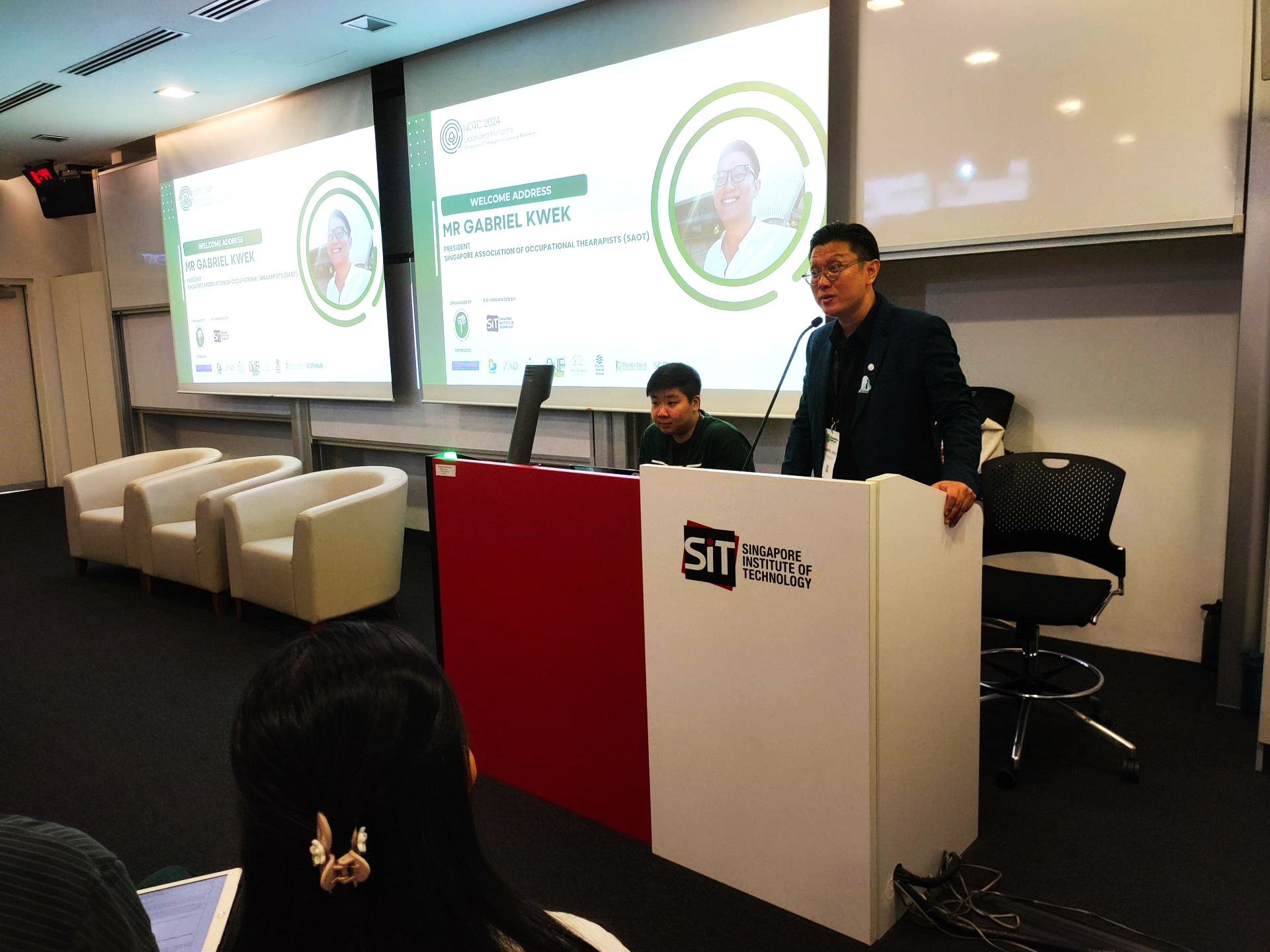
Gabriel Kwek highlights that the conference aims to empower occupational therapists with essential resources and expert guidance, fostering collaboration and innovation for a healthier, more inclusive Singapore. (SIT Photo)
Providing Support for All
Across the myriad of presentations on occupational therapy, two projects stood out for their findings and potential applications to pressing community concerns.
Project OT4meds: Identifying and Supporting Community-Dwelling Seniors with Medication Management Difficulties
Project OT4Meds, led by AWWA Principal Occupational Therapist Yap Li Wen, was initiated to identify medication management difficulties among community-dwelling seniors and provide Active Ageing Centres (AACs) with the right supportive resources.
“At AWWA, we believe in supporting seniors in ageing well in the community,” said Li Wen. “Studies in Singapore have shown that around 60% of older adults have challenges adhering to medication regimes. We wanted to see how we can support AACs in identifying the seniors we serve who might have medication management difficulties and more.”
Factors such as low health literacy, difficulties understanding reading instructions, and a lack of knowledge of proper storage procedures and expiration dates are some key learnings that Li Wen shared. Working with SIT students Gracia Wong and Rachel Pek as part of their final-year clinical practice education, the fresh perspectives and up-to-date knowledge and resources meant that data collected and analysed could be channelled towards developing useful resources for the AAC team to implement on the ground.
One such solution is the creation of a workflow, screener, and resource kit tailored for AAC staff lacking the required training to aid them in identifying and supporting affected seniors more efficiently. Furthermore, using pill boxes and organisers removes the need for memorisation and instructions. The results also reflected a pressing need for improved patient and caregiver education to enhance overall health literacy and patient support. By involving the next generation of occupational therapists and empowering other healthcare partners, Project OT4meds demonstrates the difference made when a more holistic approach is adopted.
Mental Health Among Youths: Occupational Competence and Self-Efficacy
With the prevalence of mental health conditions among youth, Associate Professor Tan Bhing Leet, Cluster Director of the Health and Social Sciences Cluster, SIT, Amelia Ho from SPD, Senior Occupational Therapist Hannah Loh and Dr Lim Choon Guan from the Institute of Mental Health set out to determine the relationships between mental health symptoms and occupational competence, occupational value, academic self-efficacy, and the growth mindset.
“This area is less well researched, not only among the occupational therapy profession but also within mental health practice. It is also timely with the spotlight on mental health among youths and young adults,” said A/Prof Tan.
Amelia highlighted that “sustaining attention” and “making decisions” in the right state of mind were issues that youths struggled with. Further examination suggests a possible prediction of occupational competence based on one’s attentiveness and mindfulness. The symptoms of internalising and externalising problems were found to be associated with youths’ diminished views of themselves, with the former related to poorer academic self-efficacy and the latter to a lower growth mindset.
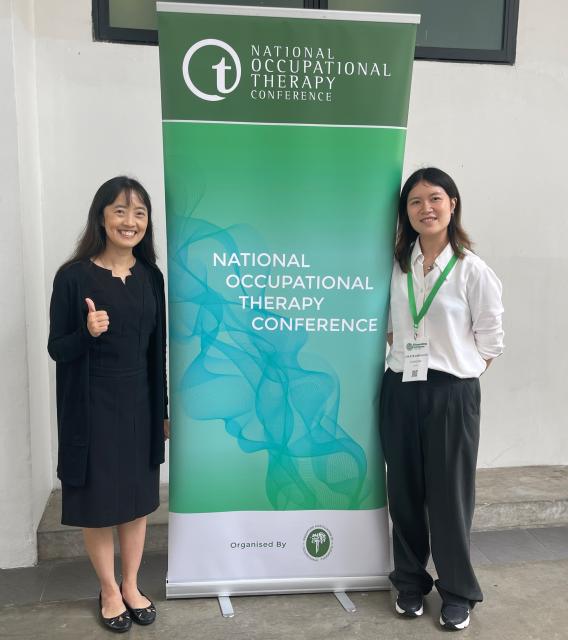
Researchers A/Prof Tan Bhing Leet and Amelia Ho investigate the correlation between mental health symptoms and occupational competence in youth, highlighting a critical area for occupational therapy intervention. (SIT Photo)
While the study draws its findings from a smaller sample size of 39, these initial findings pave the way for occupational therapists to play a more impactful role in shaping youths’ perspectives on their inherent values and competence, as well as their eventual functional performance. By supporting youths’ ability to be attentive and mindful in their daily life and having programmes that facilitate mental health and occupational competence for all aspects of daily living, it is possible to build resilience among the next generation.
A Future Built on Empowerment
NOTC 2024 represents SIT and SAOT’s continued commitment to working closely to promote further development and innovation within the health and social care sectors. Plans are in motion for upcoming initiatives for present and future occupational therapists to refine their skills further, learn from industry experts, and build meaningful connections across various population groups.















![[FA] SIT One SITizen Alumni Initiative_Web banner_1244px x 688px.jpg](/foodplant/openhouse/directory/sites/default/files/2024-12/%5BFA%5D%20%20SIT%20One%20SITizen%20Alumni%20Initiative_Web%20banner_1244px%20x%20688px.jpg)

